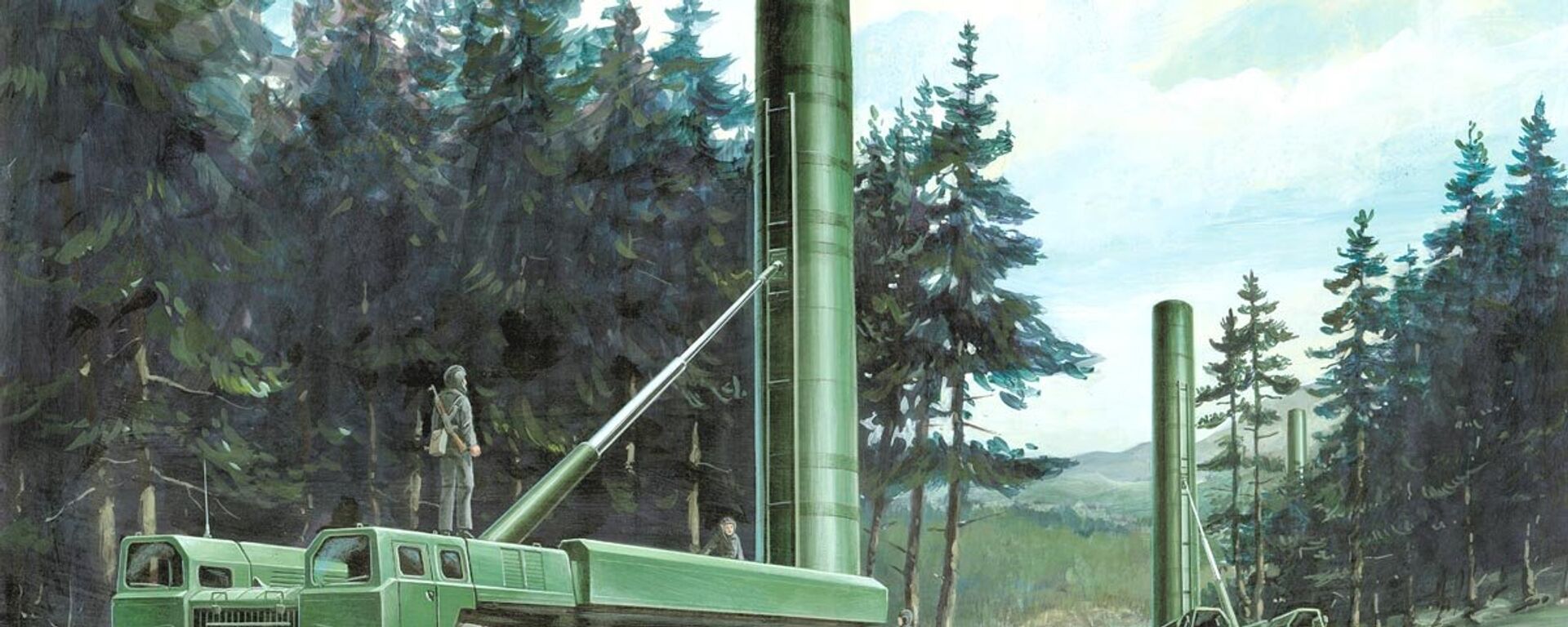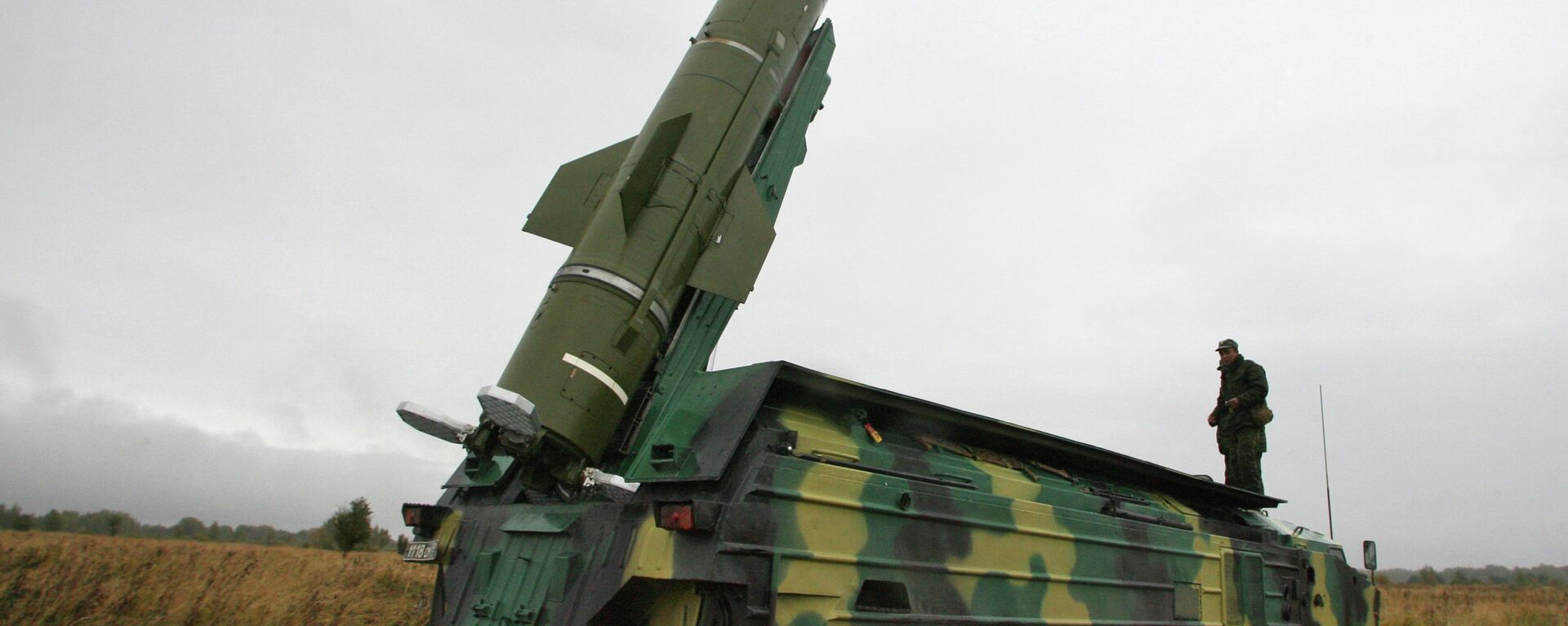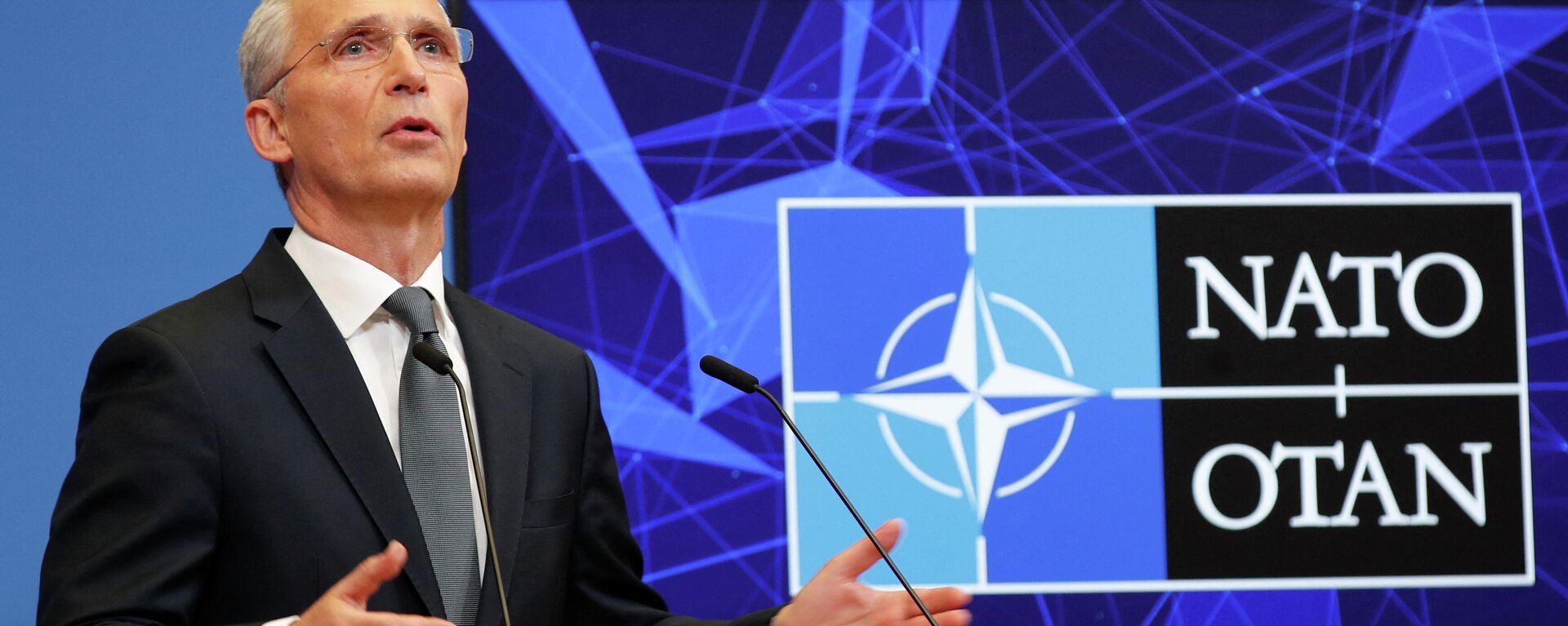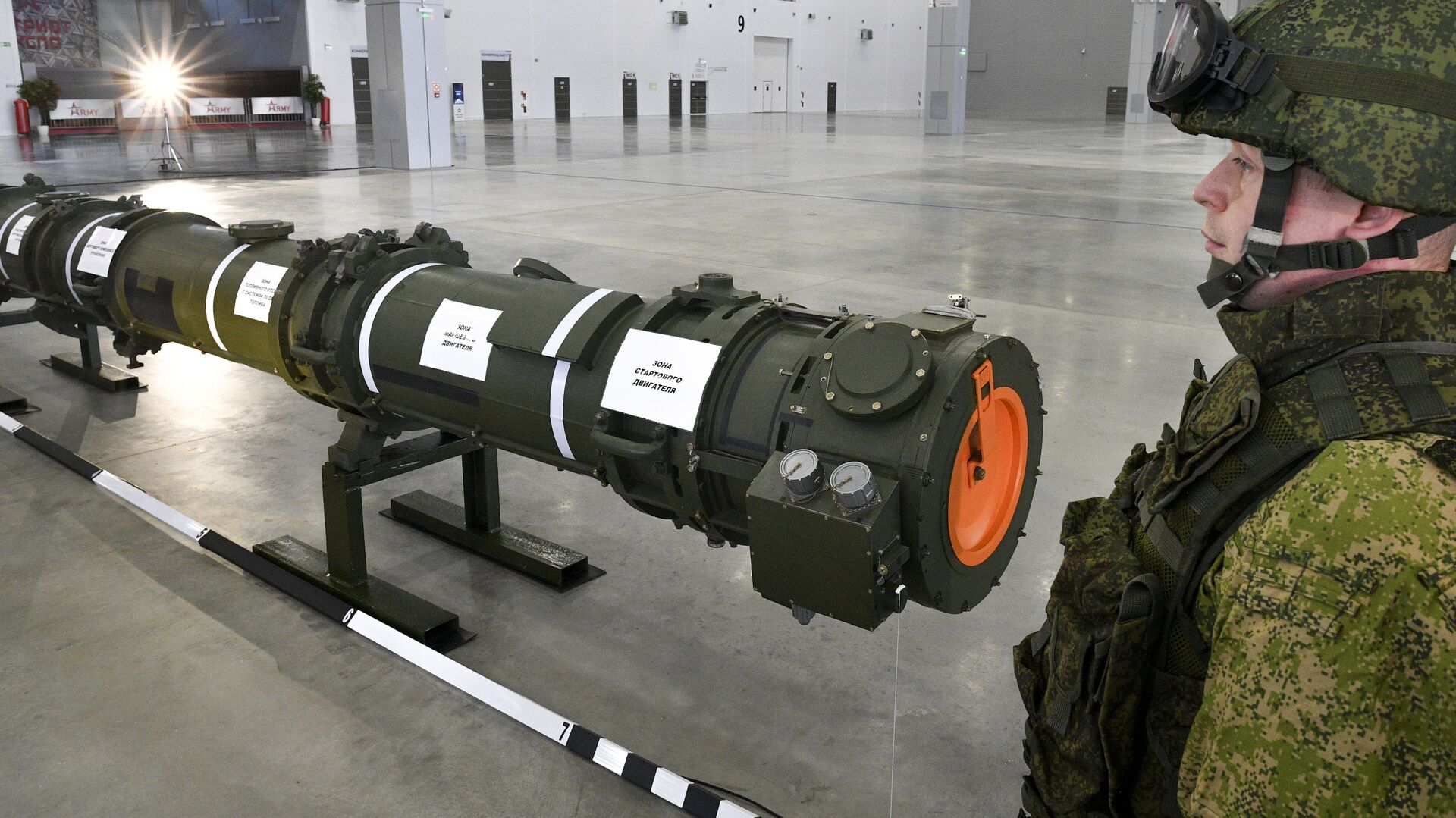https://sputnikglobe.com/20220118/us-warns-of-strong-response-if-russia-tries-to-intimidate-washington-with-nukes-in-latin-america-1092349826.html
US Warns of ‘Strong Response’ if Russia Tries to ‘Intimidate’ Washington With Nukes in Latin America
US Warns of ‘Strong Response’ if Russia Tries to ‘Intimidate’ Washington With Nukes in Latin America
Sputnik International
On Monday, asked to comment on whether Moscow may try to station missiles in some Latin American country or countries to counter US and NATO deployments near... 18.01.2022, Sputnik International
2022-01-18T19:00+0000
2022-01-18T19:00+0000
2022-01-18T19:48+0000
russia
america
nuclear
nato
russia-nato row on european security
https://cdn1.img.sputnikglobe.com/img/107746/95/1077469516_0:83:3347:1965_1920x0_80_0_0_8b8b4ca8bf5a3fba83eaf23af3fe43e1.jpg
Washington will not be ‘intimidated’ by ‘aggressive’ Russian brainstorming about putting military hardware or even nuclear-tipped missiles near the United States, US Ambassador to the United Nations Linda Thomas-Greenfield has said.“I know that they’re trying to respond in a way to intimidate the world, but we’re not going to allow ourselves to be intimidated, nor will we allow Ukraine to be intimidated into compromising its own security,” the ambassador added.Thomas-Greenfield did not elaborate on why a purely hypothetical Russian military deployment near US shores would be ‘aggressive’ while the ongoing US and NATO buildup on Moscow’s doorstep is not. President Vladimir Putin and other Russian officials have repeatedly expressed concerns about the construction of US missile defence facilities in Poland and Romania which could easily be converted to fire nuclear-tipped Tomahawk cruise missiles deep into the Russian hinterland. Last month, Putin also warned that the deployment of US missiles in Ukraine would mean a flight time to Moscow of just 4-5 minutes in the event of war.A week earlier, Deputy Foreign Minister Sergei Ryabkov hinted that Russia remained open to deploying some type of military infrastructure in Latin America. “I don’t want to confirm anything, I won’t rule anything out either,” he said.Alternatives to Cuban Missile Crisis 2.0In December, days before the publication of twin Russian security proposals to the US and NATO, Ryabkov said that Russia was “offering an alternative” to a repeat of a Cuban Missile Crisis-style scenario, including “the non-deployment of these kinds of weapons near our borders, the withdrawal of forces and assets which destabilize the situation, a rejection of provocative measures, including various drills.”“But we need guarantees, and the guarantees must be legal,” Ryabkov stressed.Days later, Russia’s Foreign Ministry published two draft agreements calling for legally binding limits on the deployment of troops, missile systems, aircraft and warships in areas where they could be considered a threat to Russia on one side or the US and NATO on the other. The draft treaties also asked the Western bloc to halt its eastward creep into Ukraine and other post-Soviet countries.On 18 December, Russian Deputy Foreign Minister Alexander Grushko warned that if the US and NATO rejected Russia’s security proposals, Moscow would be forced to create a system of “counterthreats.”“A moment of truth is upon us. Indeed, we have reached a dangerous line. And our proposals are aimed precisely at moving away from this dangerous line and toward some kind of normal dialogue, at the forefront of which will be security interests,” the diplomat said. He did not elaborate on what the possible Russian “counterthreats” might be.Ryabkov and Grushko led the Russian delegations at last week’s talks in Geneva and Brussels with US and NATO officials, with the hours-long talks allowing each side to formally lay out their position in detail. Washington and its allies are expected to provide a formal written response to Russia’s security proposals this week. NATO chief Jens Stoltenberg and US officials have already indicated that they will not end the alliance’s open door policy with regard to Ukraine, nor accept Russia’s calls on the bloc to refrain from stationing troops and military equipment in the states of alliance members which joined after it began its eastward push in the late 1990s.
https://sputnikglobe.com/20211210/moscow-offering-us-nato-alternative-to-new-cuban-missile-crisis-scenario-foreign-ministry-says-1091417821.html
https://sputnikglobe.com/20211218/moscow-if-us-rejects-security-proposals-russia-will-be-forced-to-create-counterthreats-1091631658.html
https://sputnikglobe.com/20220116/stoltenberg-says-nato-wont-agree-to-keep-military-within-pre-1997-borders-1092303995.html
Sputnik International
feedback@sputniknews.com
+74956456601
MIA „Rossiya Segodnya“
2022
News
en_EN
Sputnik International
feedback@sputniknews.com
+74956456601
MIA „Rossiya Segodnya“
Sputnik International
feedback@sputniknews.com
+74956456601
MIA „Rossiya Segodnya“
america, nuclear, nato
US Warns of ‘Strong Response’ if Russia Tries to ‘Intimidate’ Washington With Nukes in Latin America
19:00 GMT 18.01.2022 (Updated: 19:48 GMT 18.01.2022) On Monday, asked to comment on whether Moscow may try to station missiles in some Latin American country or countries to counter US and NATO deployments near Russia, Kremlin spokesman Dmitri Peskov said the Russian side was considering “various options” to ensure its security.
Washington will not be ‘intimidated’ by ‘aggressive’ Russian brainstorming about putting military hardware or even nuclear-tipped missiles near the United States, US Ambassador to the United Nations Linda Thomas-Greenfield has said.
“The Russians are pulling every straw out of the basket that they can pull out to intimidate us into allowing them to take this action. They know that if they take such an aggressive action against the United States that they can expect a response, and that response will be a strong response,” Thomas-Greenfield
said, speaking to Washington Post Live on Tuesday.
“I know that they’re trying to respond in a way to intimidate the world, but we’re not going to allow ourselves to be intimidated, nor will we allow Ukraine to be intimidated into compromising its own security,” the ambassador added.
Thomas-Greenfield did not elaborate on why a purely hypothetical Russian military deployment near US shores would be ‘aggressive’ while the ongoing US and NATO buildup on Moscow’s doorstep is not. President Vladimir Putin and other Russian officials have
repeatedly expressed concerns about the construction of US missile defence facilities in Poland and Romania which could easily be converted to fire nuclear-tipped Tomahawk cruise missiles deep into the Russian hinterland. Last month, Putin also warned that the deployment of US missiles in Ukraine would mean a flight time to Moscow of
just 4-5 minutes in the event of war.
On Monday, when asked whether Russia was considering a missile deployment in Cuba or Venezuela, Putin’s press secretary Dmitri Peskov said that “obviously, in the context of the current situation, Russia is exploring options that would ensure its security.”
A week earlier, Deputy Foreign Minister Sergei Ryabkov
hinted that Russia remained open to deploying some type of military infrastructure in Latin America. “I don’t want to confirm anything, I won’t rule anything out either,” he said.
Alternatives to Cuban Missile Crisis 2.0
In December, days before the publication of twin Russian security proposals to the US and NATO, Ryabkov said that Russia was “offering an alternative” to a repeat of a Cuban Missile Crisis-style scenario, including “the non-deployment of these kinds of weapons near our borders, the withdrawal of forces and assets which destabilize the situation, a rejection of provocative measures, including various drills.”
“But we need guarantees, and the guarantees must be legal,” Ryabkov stressed.

10 December 2021, 13:10 GMT
Days later, Russia’s Foreign Ministry
published two draft agreements calling for legally binding limits on the deployment of troops, missile systems, aircraft and warships in areas where they could be considered a threat to Russia on one side or the US and NATO on the other. The draft treaties also asked the Western bloc to halt its eastward creep into Ukraine and other post-Soviet countries.
On 18 December, Russian Deputy Foreign Minister Alexander Grushko warned that if the US and NATO rejected Russia’s security proposals, Moscow would be forced to create a system of “counterthreats.”
“A moment of truth is upon us. Indeed, we have reached a dangerous line. And our proposals are aimed precisely at moving away from this dangerous line and toward some kind of normal dialogue, at the forefront of which will be security interests,” the diplomat
said. He did not elaborate on what the possible Russian “counterthreats” might be.

18 December 2021, 18:26 GMT
Ryabkov and Grushko led the Russian delegations at last week’s talks in Geneva and Brussels with US and NATO officials, with the hours-long talks allowing each side to formally lay out their position in detail. Washington and its allies are expected to provide a formal written response to Russia’s security proposals this week. NATO chief Jens Stoltenberg and US officials have already indicated that they will not end the alliance’s open door policy with regard to Ukraine, nor accept Russia’s calls on the bloc to refrain from stationing troops and military equipment in the states of alliance members which joined after it began its eastward push in the late 1990s.

16 January 2022, 20:26 GMT





